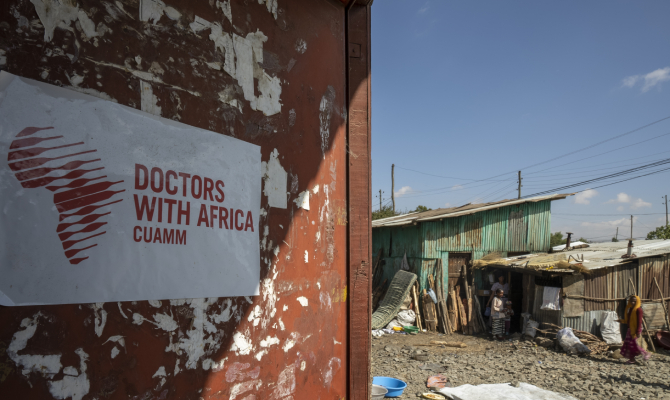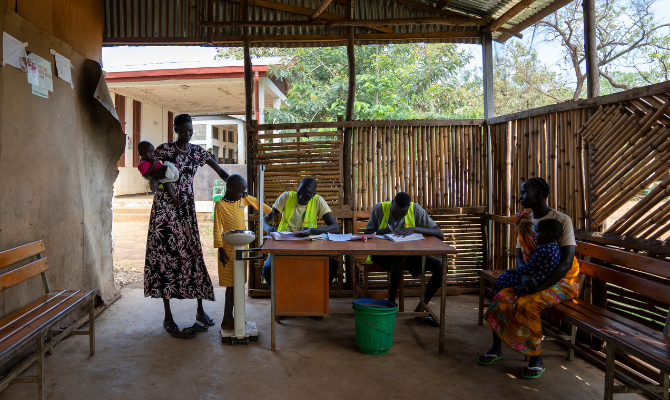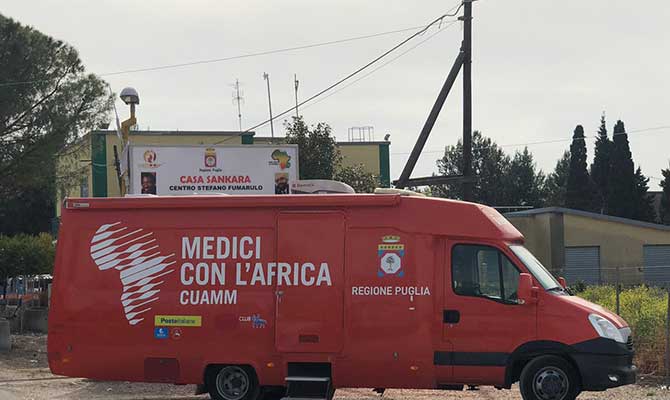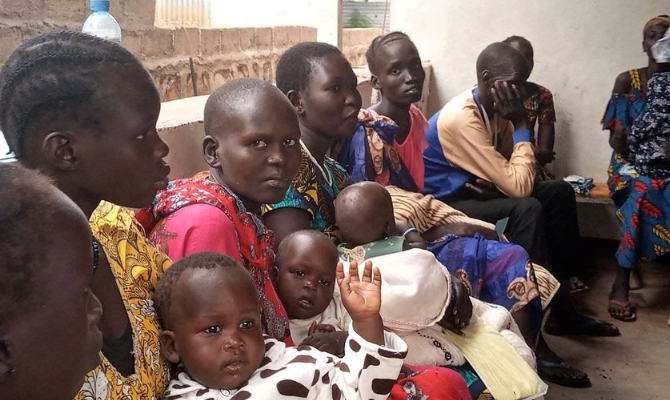One hundred twenty million. That’s the number of people forced to flee their countries due to wars, persecutions, and violence worldwide, according to the latest UNHCR report published on World Refugee Day, June 20. Over the last ten years, this figure has doubled due to escalating conflicts and instability. The most significant increase concerns those who leave their homes but remain in their own country, with 68.3 million people (IDPs), while refugees and other people in need of international protection under the UNHCR and UNRWA mandate counts around 43.4 million. Of these, 75% live in low and middle-income countries, often in conditions of extreme vulnerability.
Every day, in the countries where we operate, we witness the challenges people forced to flee have to face in the attempt to save their lives and seek a better future. These are countries like South Sudan, experiencing the largest refugee crisis on the African continent; Mozambique, where waves of violence have continued since 2017; and Ethiopia, severely affected by the conflict in Tigray. But also countries like Ukraine, where about 5 million internally displaced persons (IDPs) are currently counted due to an ongoing war with increasingly urgent humanitarian needs. In the face of these situations, whether chronic crises or pure emergencies, we operate on four lines: access to health services with a focus on the most vulnerable groups, mothers, and children through outpatient and prenatal visits, vaccinations, and childbirth assistance; provision of medicines and medical supplies; training of local health workforce and education and advocacy on preventive health and hygiene issues. We do this without forgetting the collaboration with local authorities, a key element for strengthening the resilience capacity of both systems and communities.
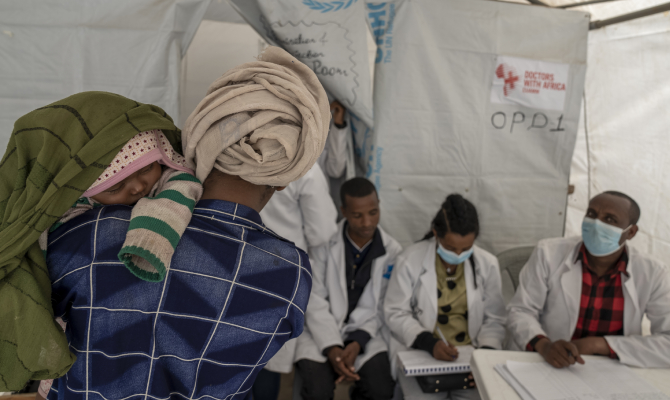
CUAMM’s Response
Mozambique: The situation in Cabo Delgado, in the north of the country, continues to be particularly tense and challenging. Since 2017, 1.6 million people have been affected by ongoing violence perpetrated by armed groups, including 830,000 internally displaced persons (IDPs). Among them, many women and girls are victims of gender-based violence. Doctors with Africa CUAMM offers mental health services as well as legal assistance to victims of gender-based violence, providing safe spaces and supporting microcredit programs to help them towards recovery and empowerment.
South Sudan: According to UNHCR, South Sudan is experiencing the largest refugee crisis on the African continent and the third worst in the world. Today, about 2.4 million South Sudanese refugees are hosted by neighboring countries, and 2.2 million are internally displaced. For over a year, the country has also been hosting thousands of refugees fleeing the war in neighboring Sudan. 91% of these are South Sudanese who had previously fled and are now forced to return. With support for 103 health facilities and 4 hospitals in various regions of the country, CUAMM doctors strive to assist the population of this extremely fragile country by providing basic medical services and especially ensuring maternal and child health through prenatal visits, assisted births, and pediatric visits.
Ethiopia: It is the second African country in terms of the number of refugees hosted, with over 1 million people, mainly from South Sudan, Somalia, and Eritrea. In the Gambella region, on the border with South Sudan, CUAMM operates in the Nguenyyiel, Jewi, and Tierkidie refugee camps, supporting health facilities in the provision of basic health services. Recently, CUAMM has renewed its commitment to intervene in Tigray, particularly in the Eastern Zone and the Shire area, where over 500,000 IDPs are concentrated, and where most health facilities have been destroyed due to ongoing conflict. At the same time, we continue our work in Debre Berhan, Amhara region, where, according to OCHA data, about 200,000 IDPs have taken refuge, mainly from the Oromia region. Most of them live with the community, but many are concentrated in reception centers that need everything from health to nutritional services.
Uganda: It is the African country hosting the largest number of refugees, well over 1.5 million, with about 81% being women and children. To date, refugees represent 3.6% of the ugandan population making the country a model of reception and integration in the continent. Here, CUAMM operates in the northwestern region of West Nile with a health intervention that includes eye surgery services through mobile clinics, as well as maternal and child health services and management of obstetric emergencies.
Ukraine: With its heart in Africa, CUAMM intervened to provide aid in a country with over 5 million internally displaced persons (IDPs) and 5.8 million refugees due to the outbreak of a war at its doorstep. Of these, 60% are women, 27% are minors, and 48% are people living with disabilities. Initially focused on the city of Chernivtsi, near the Romanian border, CUAMM’s intervention has grown to now include 30 hospital facilities in 5 different Oblasts, supported through the provision of medicines, medical supplies, food, clothing, and the provision of psychological support services to the population.
Moldova: Since the conflict broke out on February 24, 2022, over one million refugees have crossed the border seeking refuge in Moldova, one of Europe’s most fragile countries. CUAMM’s commitment in the country started in April 2022 in the capital Chişinau. Since then, and in close collaboration with the Ministry of Health and the WHO, the intervention has been guided by the twofold objective of providing basic medical assistance within Refugee Accommodation Centers (RACs) and offering specific training for local medical personnel on neonatal emergencies.

